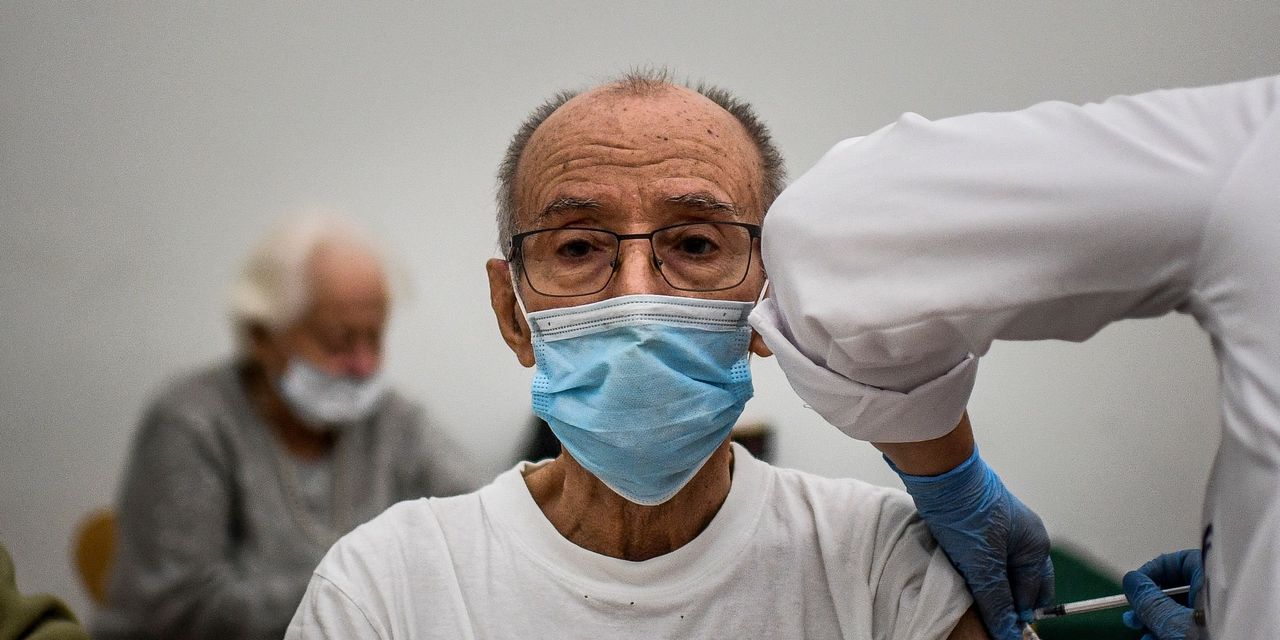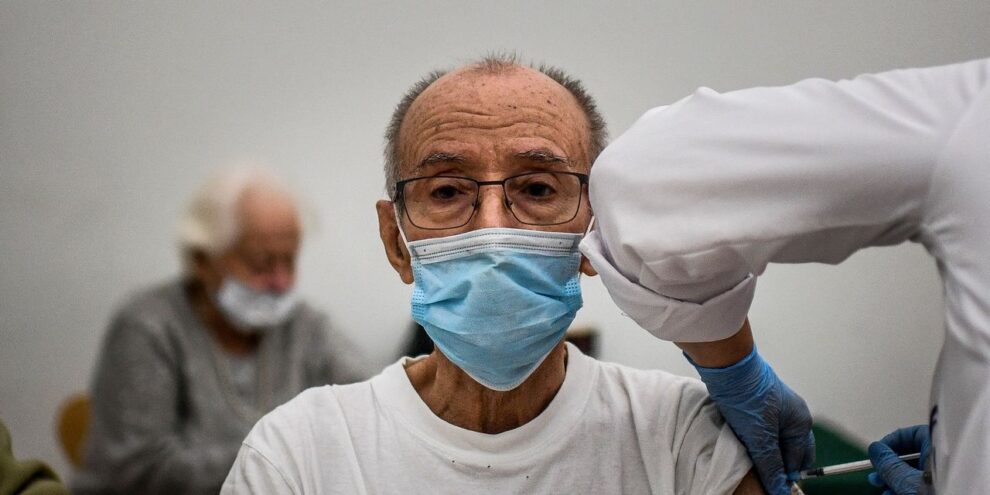
Middle-aged Americans saw their blood pressure rise during the COVID-19 pandemic, according to new research published Monday in Circulation, the American Heart Association’s flagship journal.
Nearly half of American adults have high blood pressure, the association said, and it’s the leading cause of heart disease. Roughly 75% of all high blood-pressure cases remain above the recommended blood-pressure levels.
Aside from the stress related to finances and health during the pandemic, stay-at-home orders between March and April 2020 to slow the spread of COVID-19 led to people exercising less and, possibly, eating more takeout.
From April 2020 to December 2020, average increases in blood pressure each month ranged from 1.10 to 2.50 mm Hg higher for systolic blood pressure and 0.14 to 0.53 mm Hg for diastolic blood pressure versus the same time period in 2019.
“‘At the start of the pandemic, most people were not taking good care of themselves.’”
“At the start of the pandemic, most people were not taking good care of themselves,” said lead study author Luke Laffin, co-director of the Center for Blood Pressure Disorders at the Cleveland Clinic in Cleveland, Ohio.
“Increases in blood pressure were likely related to changes in eating habits, increased alcohol consumption, less physical activity, decreased medication adherence, more emotional stress and poor sleep,” he added.
Last October, the Food and Drug Administration recommended that restaurants and food manufacturers reduce the amount of sodium in their food to 3,000 mg per day — still higher than the recommended daily allowance — over a two-and-a-half-year period.
“More than 70% of total sodium intake is from sodium added during food manufacturing and commercial-food preparation,” the FDA said. Excess sodium in the diet helps to raise blood pressure.
The latest study included nearly 500,000 adults across the U.S., with an average age of 46 years — 54% were women and 46% men — who had their blood pressure measured during an annual employee health screening from 2018 through 2020.
“‘The COVID-19 pandemic has had and will continue to have long-reaching health impacts.’”
Before the pandemic, blood pressure measures were largely unchanged when comparing the study’s previous years, the authors said. Higher readings were recorded among older participants, particularly for systolic blood pressure.
Study participants were categorized into four groups: normal, elevated, stage 1 hypertension and stage 2 hypertension, based on the current American Heart Association blood pressure guidelines.
“The COVID-19 pandemic has had and will continue to have long-reaching health impacts across the country and particularly related to uncontrolled hypertension,” said Eduardo Sanchez, the association’s chief medical officer for prevention.
Even small rises in blood pressure increase a person’s risk of stroke and other adverse cardiovascular disease events, Laffin added. He said it was important to see your doctor regularly for checkups, and keep on top of all heart-related issues.
Americans consume around 3,400 milligrams of sodium per day, according to one government study, but the Centers for Disease Control and Prevention’s dietary guidelines recommend that people consume less than 2,300 milligrams each day.
“Even small rises in blood pressure increase a person’s risk of stroke and other adverse cardiovascular disease events.”
In the 2021 U.S. News and World Report annual ranking from 1 to 39 of the world’s best (and, yes, worst) diets, a team of 24 panelists who were “nationally recognized” professionals ranked the Mediterranean diet No. 1 for the fourth year in a row.
The ranking is based on seven criteria: short-term weight loss, long-term weight loss, effectiveness for cardiovascular disease prevention, effectiveness for preventing diabetes, ease of compliance, nutritional completeness and health risks.
No. 2 on the U.S. News and World Report list: the DASH diet, which stands for Dietary Approaches to Stop Hypertension. It recommends fruits, vegetables, nuts, whole grains, poultry, fish and low-fat dairy products, while restricting salt, red meat, sweets and sugar-sweetened beverages.
“Even in the midst of the pandemic, it’s important to pay attention to your blood pressure and your chronic medical conditions,” Laffin said. “Get regular exercise, eat a healthy diet, and monitor your blood pressure and cholesterol.”












